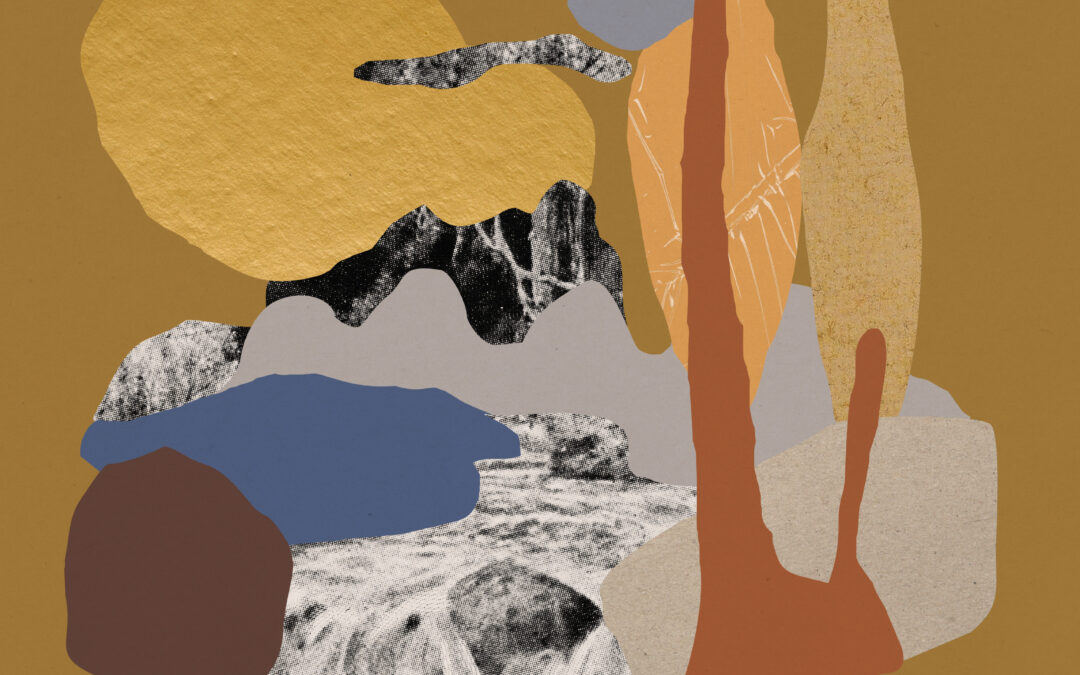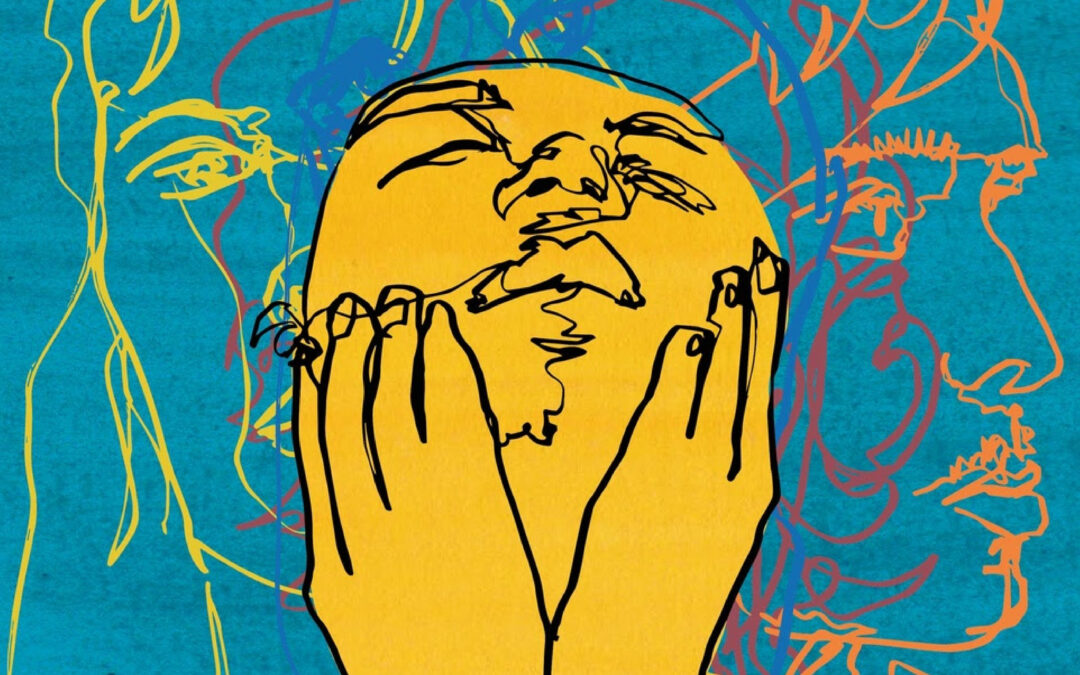One of life’s most frustrating yet intriguing facets is striking a delicate balance of our celestial energies. By that, I’m referring to the push and pull of the divine masculine and feminine. My interest in the divine feminine is sparked by how it is heralded as the home for fertility, creativity and intuition. For Tongaat-born-Pretoria-based singer and songwriter Nontokozo Qhobosheane, affectionately known as Khan Khalii, the sanctimonious frequency found in musical expression is how she channels her divine feminine through song, bold narrative and community.
With a rich catalogue boasting projects like “Gods Never Die, Vol. 1,” “Sooner,” and collaborations like “VERSIONS Doubles, Vol.1,” “Moonlight,” “Oasis Park III”, and “VERSIONS Soundtrack, Pt 2” Khan’s artistry is nuanced by ethereal soundscapes that are complemented by emotive, raw storytelling. Blending Soul, R&B, and experimental textures, her music feels almost ritualistic — immersive, genre-defying, and deeply spiritual. Listening becomes a trance-like experience: part ancestral healing, part cosmic drift.
Her latest opus, “Lumeria”, serves as a marker of her artistic growth and conceptual brilliance. The serene seven-track offering is the first of a four-part concept universe set in an angelic alien world inhabited only by women. Through exploring grief, growth and transformation, we are warped into a sonic journey where we confront our shadows, facilitating much-needed inner work, grappling with the seven stages of grief at every turn to emerge from the listening experience with a renewed sense of strength.
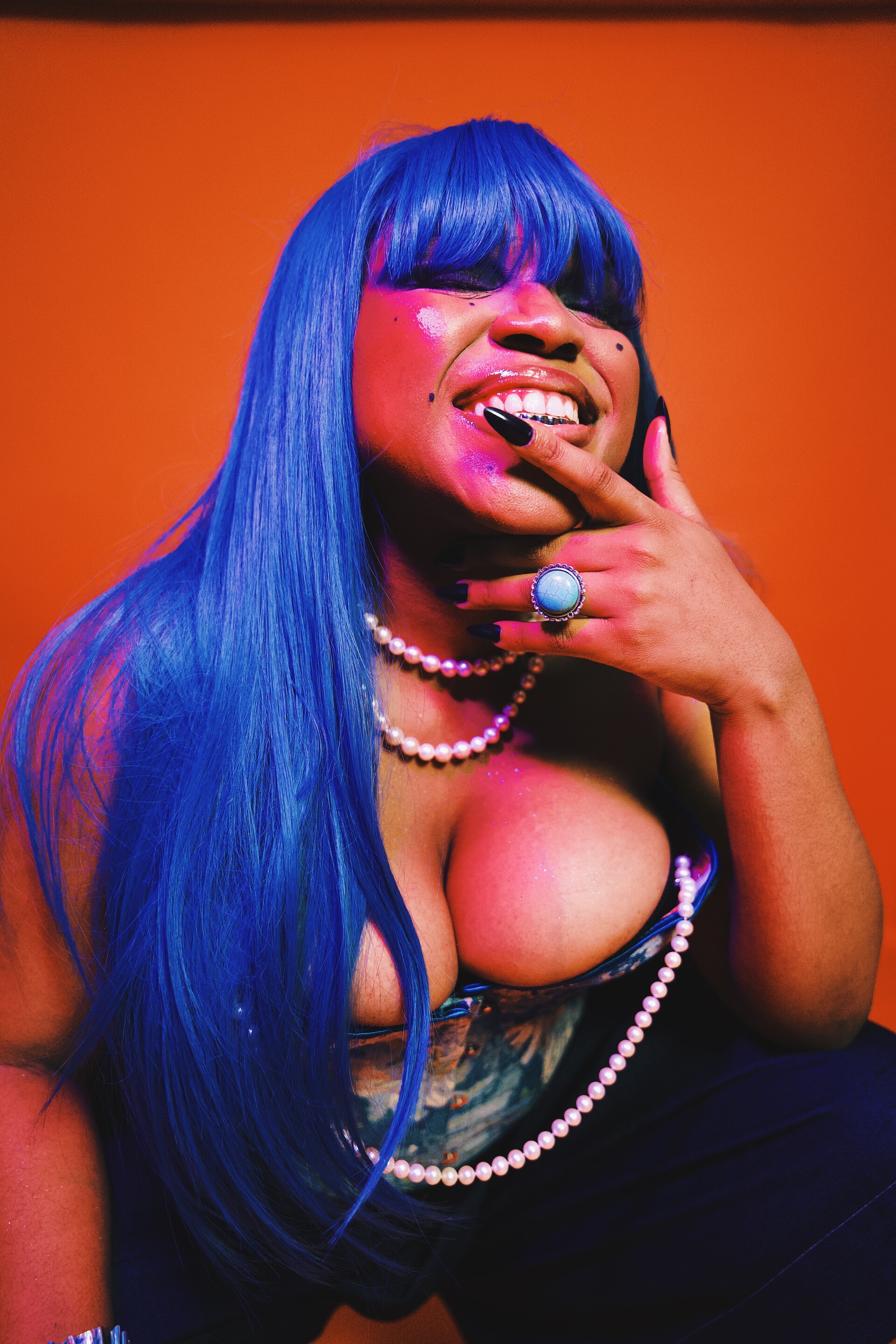
Photography by Neo Lesego Kgotlagomang
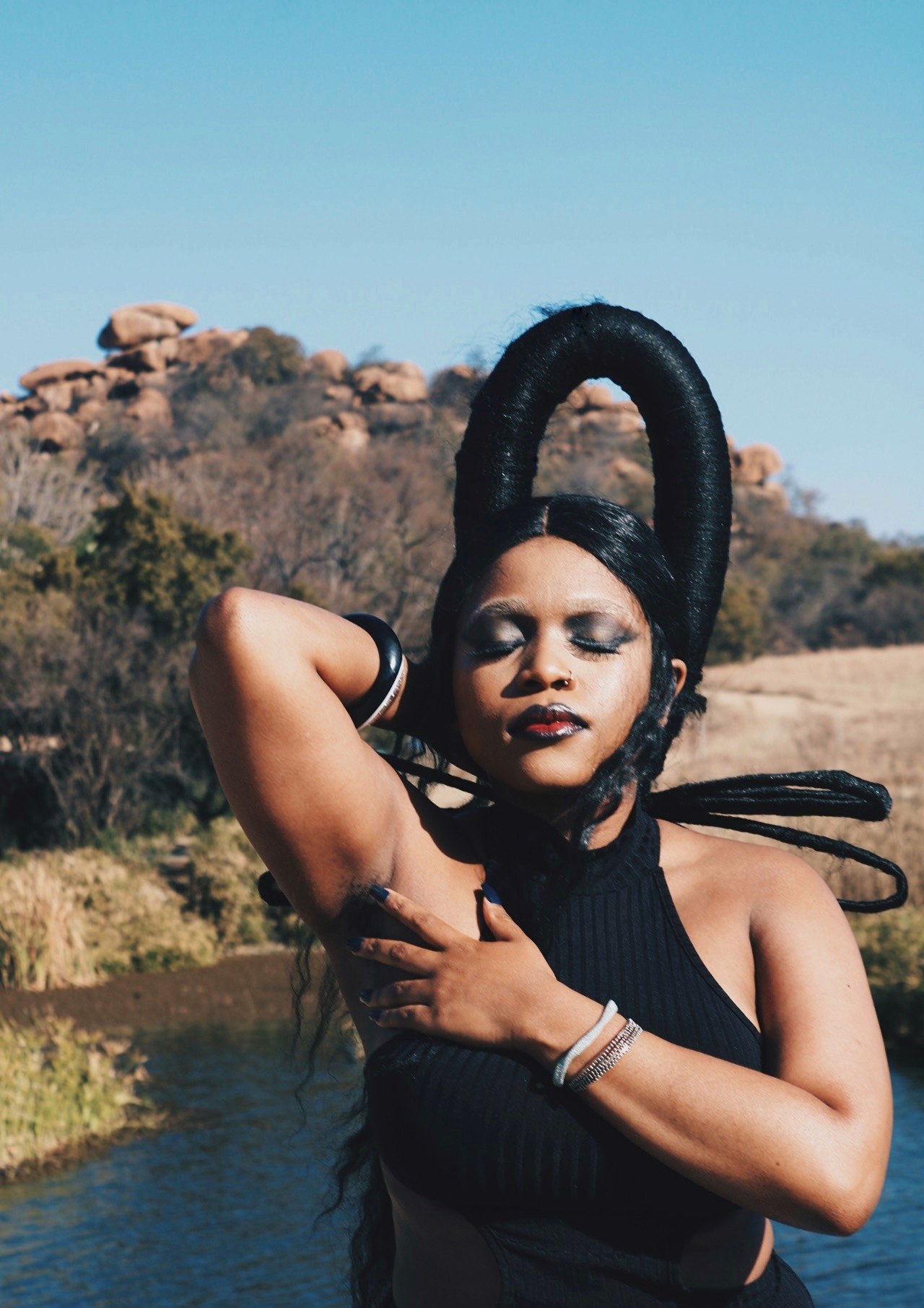
Photography by Sibu Ngcobo of Everything Films
Khan’s feminine divinity unravels in her sense of community and business acumen, and this is evident through her being selected as one of thirty-five global fellows for the Versions Fellowship, Digital Lab Africa Music Cohort 2023, the Bridgefire Program, In The City, Basha Uhuru and Fak’ugesi African Digital innovation Festival where she contributed to the music industry through initiatives that use music to advocate for social justice, cross-disciplinary collaboration, digital innovation and more.
Above and beyond her impressive corporate profile, my favourite initiative of hers is Khan’s Korner, which started during COVID on Clubhouse, a workshop series for women and queer creatives focused on demystifying the music business and empowering marginalised voices through prioritising wellness and empowering her budding community with the skills, the tools and the education to navigating an extremely turbulent and uncertain industry riddled with entrepreneurial hurdles.
Curious about the genius behind the spiritual evolution, I shared an interesting conversation about her beginnings, the concept behind “Lumeria,” how certain songs shape her artistry and the misconceptions she deals with as an artist who is gaining international recognition.
Take me back to the beginning. Please tell us about who you are and the journey you went on growing up that led to you creating music?
Khan Khalii: “My name is Khan Khalii. I’m a singer, songwriter, and music producer. I was born in Tongaat, KZN, but grew up in Pretoria. Music has always been central to my life—I spent much of my childhood in choir. I tried drama, too, but being naturally shy, it didn’t quite work out for me.
Growing up, I immersed myself in music, watching countless videos on VH1 and MTV Base. I also devoted time to writing poetry, which became an essential creative outlet. Deep down, I always knew music would be my path, even if I wasn’t sure exactly how it would happen.
My musical influences are diverse but meaningful. In high school, I connected deeply with The Soulquarians. Artists like Jill Scott, Erykah Badu, and Simphiwe Dana hold a special place in my heart. I also went through a significant Lebo Mathosa phase back then. I’ve consistently been drawn to artists who are unapologetically different and Black—I could see reflections of myself in them.
For me, making music is truly an act of worship. When I write, I feel closest to God, and with every song, I experience a kind of rebirth. The only way I can describe it is that I feel like I’m in church—it’s that sacred and transformative.”
Lumeria is set in an angelic alien universe inhabited only by women. What inspired this specific vision, and what does this setting allow you to express that a more conventional approach wouldn’t?
Khan Khalii: “The soundscape I was creating needed to exist entirely in a different universe—there was no way it could belong in our normal day-to-day reality. This creative direction coincided with a difficult period in my life. I was going through an existential crisis after losing my best friend, my cousin, and several family members in succession.
So, the idea emerged to create music that would belong to another universe altogether. When you’re building worlds, you naturally need to envision the beings who inhabit them. I’ve always felt safest around women, which inspired me to imagine a universe where only women existed.
During COVID, I went down an astrology rabbit hole and stumbled upon Lemuria—a mystical land that exists in mythology. Though my knowledge isn’t extensive, this discovery resonated with me. It made me reflect on the historical absence of Black women in science fiction until relatively recently.
That realisation sparked something deeper. I wanted to create a world where Black female alien superheroes would listen to this kind of music and feel cool and beautiful—a universe where they could truly belong and see themselves represented.”
Watch “Lesedi Laka” here
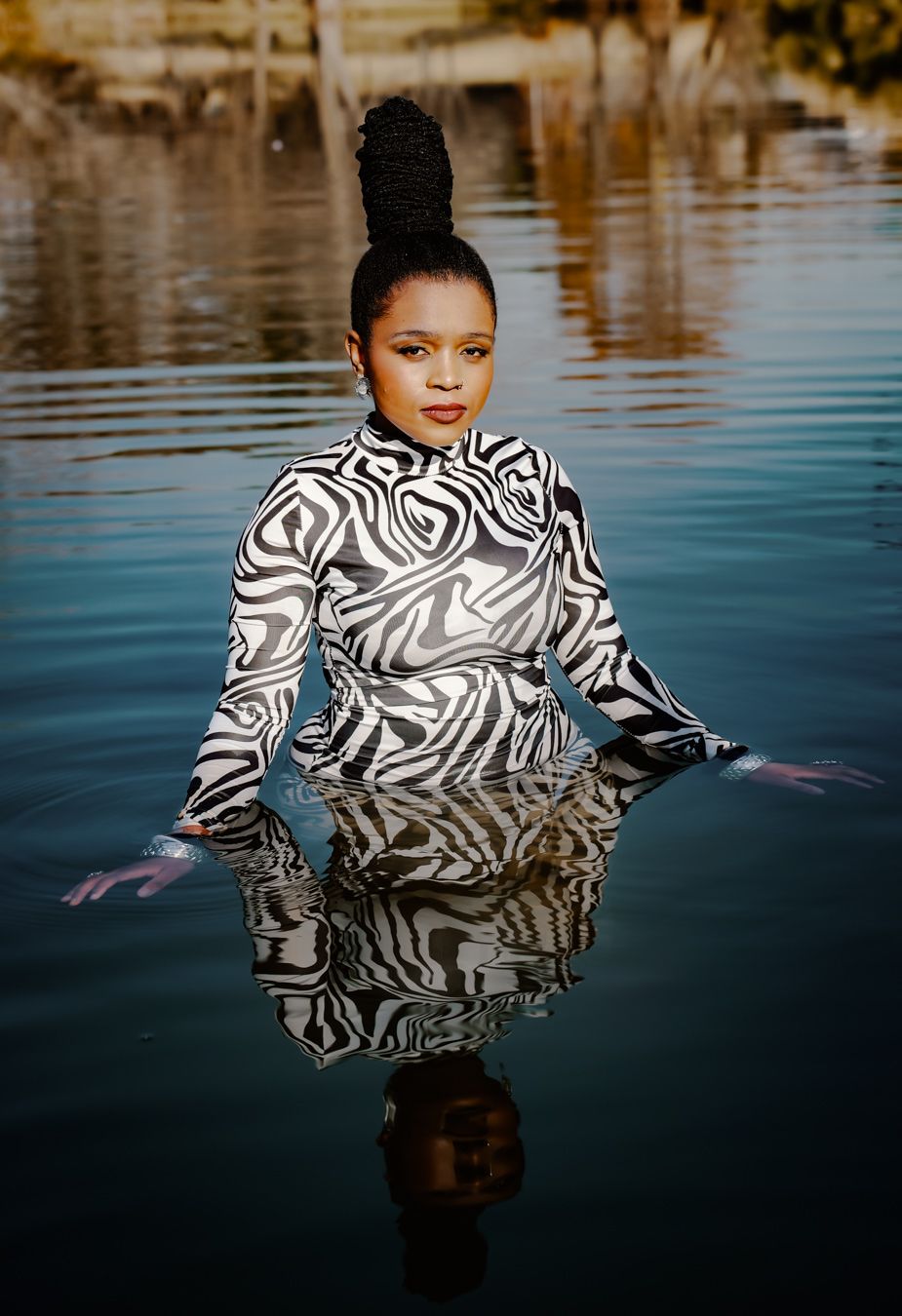
Photography by Sibu Ngcobo of Everything Films
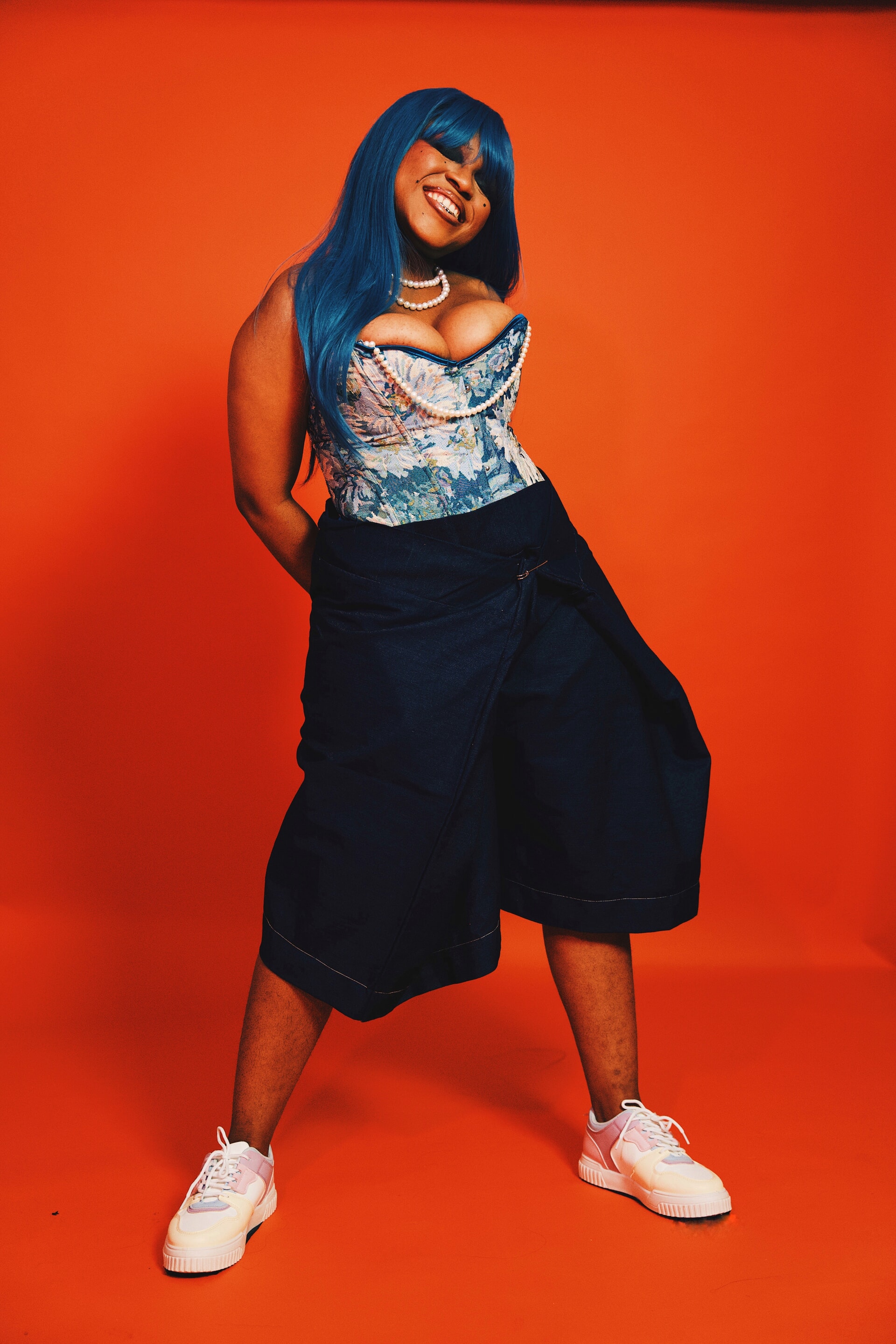
Photography by Neo Lesego Kgotlagomang
“Imprint,” “Blood On My Hands,” “Phehello’s Interlude”, and “ILY” are some of my favourite tracks from “Lumeria”. What unique elements in each of these songs do you feel best represent different facets of your artistic identity?
Khan Khalii: “Wow. Okay. With ‘Phehello’s Interlude’, that’s a very special song for me. I didn’t think people would connect to it the way they have. That track contains the last voice note my best friend had sent to me—literally the last time we ever spoke. So, I’d say that represents a very sentimental, intentional, and sincere element of my artistry.
For ‘Imprint,’ it’s very love-coded and emotional—quite mushy. Ironically, I don’t like ‘Imprint’ that much, though it’s become one of the songs people connect with most. I understand why, though. The song is essentially about a love that didn’t reach its full potential but didn’t materialise or work out. Many people have had those experiences, so with ‘Imprint,’ I’d say the key element is relatability.
‘Blood On My Hands’ was an extremely challenging song to write. The process took over a year, starting back in 2023. I needed to figure out the soundscape first, and once I felt comfortable with that, I had to determine what story I was trying to tell within it. The song is about someone being gaslit and figuring out how to leave someone who’s hurting them. That may also be relatability, but it’s much more cinematic. Yes, I would categorise that one as representing my cinematic side.
And ‘ILY’—I wrote that song for my best friend Phehello before he passed away. He was going through a challenging period of depression and felt like the whole world was turning against him. It wasn’t a good time for my friend, and the only way I could truly show Phehello how much I cared was to write this song for him. I wanted him to know that no matter what happened in life or his challenges, I would always create a safe space where he could come over, hang out, and just forget about his problems for a while.
‘ILY’ represents safety because so many people walk around feeling unloved, unappreciated, and invisible. I wrote it for anyone who feels unseen, unheard, or underappreciated. Often, the most sincere, kindest, and hardest-working people get pushed aside because they might not have the most bravado, aren’t the loudest, or just prefer observing from the background. ‘ILY’ is truly for the wallflowers. I really believe that.”
As a South African artist gaining international attention, what misconceptions about African music do you most often encounter, and how does your work challenge those perceptions?
Khan Khalii: “From my experience working with international producers, particularly in the Afro House and House music space, I’ve encountered a persistent assumption that I must sing in Zulu. It feels like an unconscious prerequisite even when it’s not explicitly stated.
There’s this underlying perception that Africans are a monolith, and we all must conform to certain expectations. Yes, I do incorporate traditional elements in my music, but it seems there’s an expectation that you must be strictly ‘traditional’ or what some might call ‘Afrocentric.’ What I find challenging is the lack of room for exploring what being African truly means. Artists like Tyla, Bongeziwe Mabandla, and Desire Marea have really broken those boundaries. But when you’re primarily viewed as just a vocalist, you’re expected to deliver a certain type of sound.
I often think, ‘What if I want to write differently? What if the song calls for a different approach?’ These are the challenges I’ve faced over the past couple of years—making people understand that our country has tremendous diversity. We’re all different, and while it’s our duty as African artists, especially South African artists, to be custodians of our culture, it shouldn’t happen in a way that strips us of our individualism and identity or panders to these limiting stereotypes.”
Thank you for joining us for this interview. Before you go, could you let us know what the rest of 2025 holds for you and what’s next for Khan Khali?
Khan Khalii: “What’s next for me is the ‘Lumeria’ show happening in August, which I’m really excited about. Before that, I’ll be releasing part two of ‘Lumeria’ in July, along with a couple of music videos. So those are the main projects I’m focusing on right now.”
Stream “Lumeria” here
Connect With Khan Khali
X (formerly Twitter): @khankhalii
Instagram: @khankhalii
Tik Tok: @Khankhalii_
YouTube: @khankhaliiofficial4574
Written by Cedric Dladla
For more news, visit the Connect Everything Collective homepage www.ceconline.co.za




